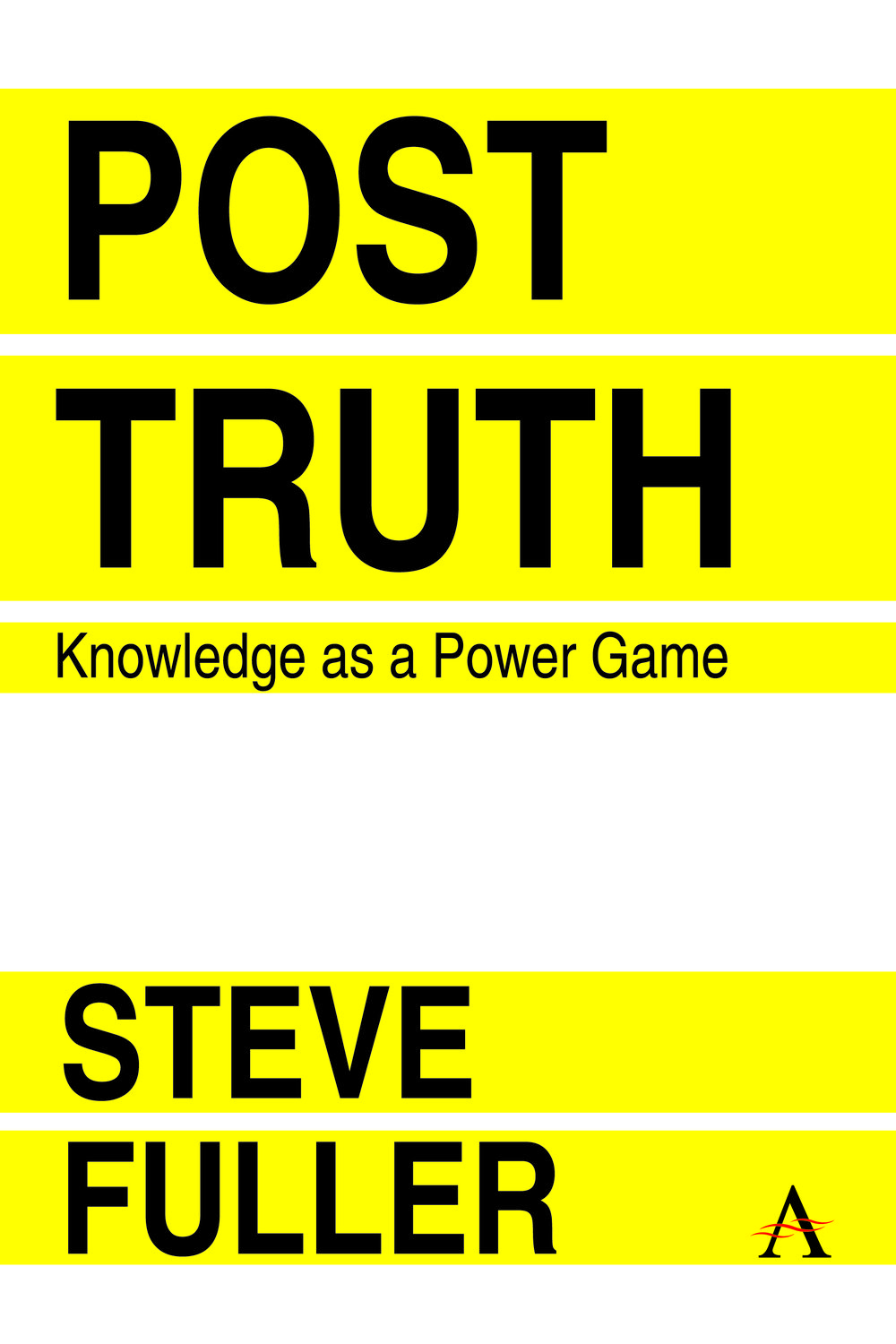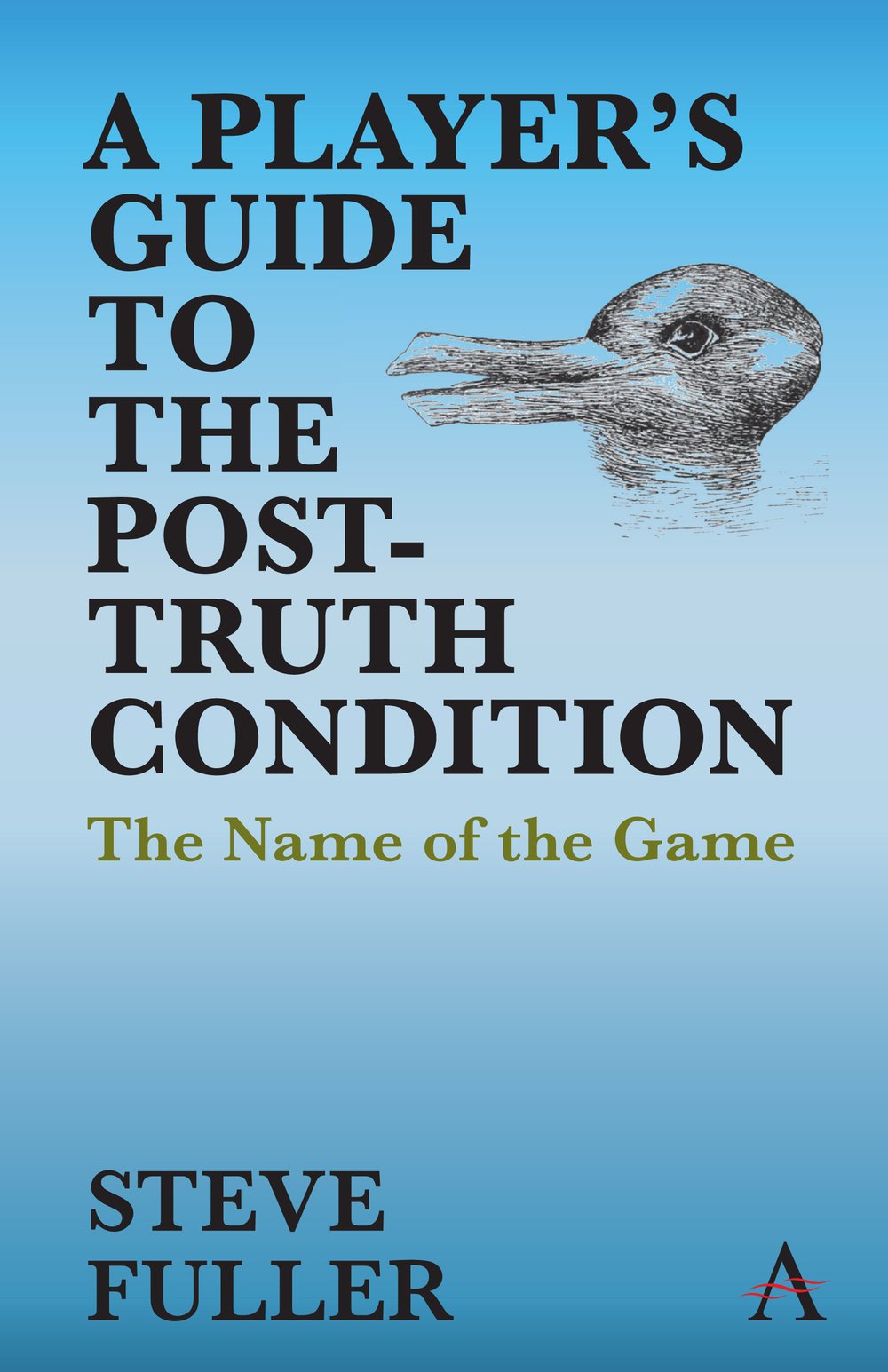Post-Truth
Knowledge As A Power Game

'Post-truth' was Oxford Dictionaries 2016 word of the year. While the term was coined by its disparagers in the light of the Brexit and US presidential campaigns, the roots of post-truth lie deep in the history of Western social and political theory. Post-Truth reaches back to Plato, ranging across theology and philosophy, to focus on the Machiavellian tradition in classical sociology, as exemplified by Vilfredo Pareto, who offered the original modern account of post-truth in terms of the 'circulation of elites'. The defining feature of 'post-truth' is a strong distinction between appearance and reality which is never quite resolved and so the strongest appearance ends up passing for reality. The only question is whether more is gained by rapid changes in appearance or by stabilizing one such appearance. Post-Truth plays out what this means for both politics and science.

Steve Fuller is the Auguste Comte Professor of Social Epistemology in the Department of Sociology at the University of Warwick, UK. Originally trained in history and philosophy of science, Fuller pioneered the field of ‘social epistemology’ in a quarterly journal that he founded in 1987 as well as in more than twenty books. His most recent books are Knowledge: The Philosophical Quest in History (2015) and The Academic Caesar (2016).


